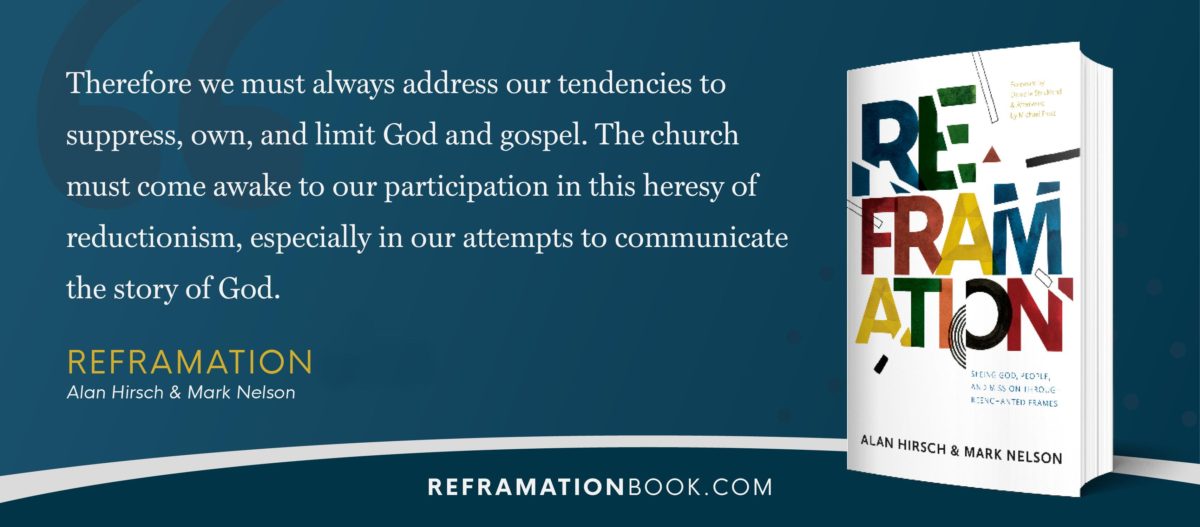Having recognized the hero’s journey in the sending, the descent, and the ascent of Jesus, we are now in a better position to understand exactly how Jesus redeems the archetypes and gifts them to the church. And here we are well-equipped by an ancient New Testament teaching on the meaning of Jesus’ incarnation, life, death, and resurrection, called anakephalaiosis (Greek) …
Finding The Ultimate Hero in Christ
Having identified and clarified the idea of creational archetypes of APEST, as well as the stages of the hero’s journey, we are now in a position to better grasp the meaning of what has been called the “ascension gifting” described by Paul in Ephesians 4:8–11. But to understand the ascension gifting properly, we need to grasp the cultural reference of …
Finding 5Q in the Hero’s Journey
Not surprisingly, an exploration of archetypes in human society is similar to the idea that myths are foundational to both personal and group identity. Joseph Campbell has aptly demonstrated the ongoing power of primary myths (defining narratives) throughout human history. For my purposes, I just want to highlight a particular aspect of myth and relate it to the role of …
REFRAMATION: The Great Reduction
Today, we have an exclusive look at Reframation: Seeing God, People and Mission Through Re-enchanted Frames, the new book by Alan Hirsch and Mark Nelson. This work…whoa! This new book takes a fresh, careful, studied and inspired at the Gospel. In the reading that follows, straight from Chapter One: Moving The Moon, you are going to find a word about …
5Q In The Classroom
This year, I’ve upped my involvement in my kids’ schools. Lots of meetings, boards, PTAs and O’s, rehearsals, performances, car pools and class time. As a church planter, I think it’s been the best way to get grounded in the neighborhood and keep a finger on the pulse, not only of what is going on, but who people really are, what they are struggling through and what excites them.
It’s also presented a new paradigm for 5Q. Perhaps the best word for it is praxis. I’ve seen 5Q at work in new and inspiring ways through the students, especially the elementary kids. They haven’t fully developed the filters that keeps them from being 100% who they are. It’s so awesome to watch unhindered personalities at work and play.
5Q and a Missional Renaissance
Our culture is moving at the speed of busy. It’s like 5th gear, but extra: 6th gear. I can just hear our calendars expanding to fit the larger transmission (OK, no more mechanic metaphors). In most cases, 5Q is a new paradigm that we are trying to teach and in order to help the people in our spheres of leadership learn something new, we have get realistic about the challenges of the typical theological education paradigm or discover something new, a new strategy.
A Biblical Approach to Incarnational Evangelism, Part 3
“Don’t you know that those who work in the temple get their food from the temple, and those who serve at the altar share in what is offered on the altar? In the same way, the Lord has commanded that those who preach the gospel should receive their living from the gospel” (1 Cor. 9:13–14). So wrote Paul, though he was quick to point out that he was not feathering his own nest. He told the Corinthians that he personally was not after any remuneration, only that the church should financially support the work of evangelists generally.
A Biblical Approach to Incarnational Evangelism, Part 2
This is the third primary commitment of a missional-incarnational church’s infiltration of society. If the church is living an intriguing new lifestyle that is so marked by goodness that it makes the gospel attractive, then to truly be effective it follows that this lifestyle must be lived in close proximity to not-yet-Christians. Paul took this seriously in his mediation of the Corinthian factions that had split over the issue of eating food offered to idols (1 Cor. 10:27–11:1).
A Biblical Approach to Incarnational Evangelism
If the Christian church is to be incarnational and missional, as we believe the New Testament anticipates, and if it’s to abandon an us-and-them mentality, it will need to rediscover the biblical mode of impacting the world around it. The traditional-attractional church thinks about evangelism as sending out church members to share their faith with others and to bring them into the church. But the New Testament writers saw it much more organically.
Ed Stetzer in Conversation with Alan Hirsch
The following article is an excerpt from an interview between Ed Stetzer, Alan Hirsch and Tim Catchim that was first published on the CT site. The book that is referenced is “The Permanent Revolution,” which is officially unofficial required reading for the apostolic thinker. Why aren’t more theologians writing on the apostolic ministry of the church? Two things come to …












